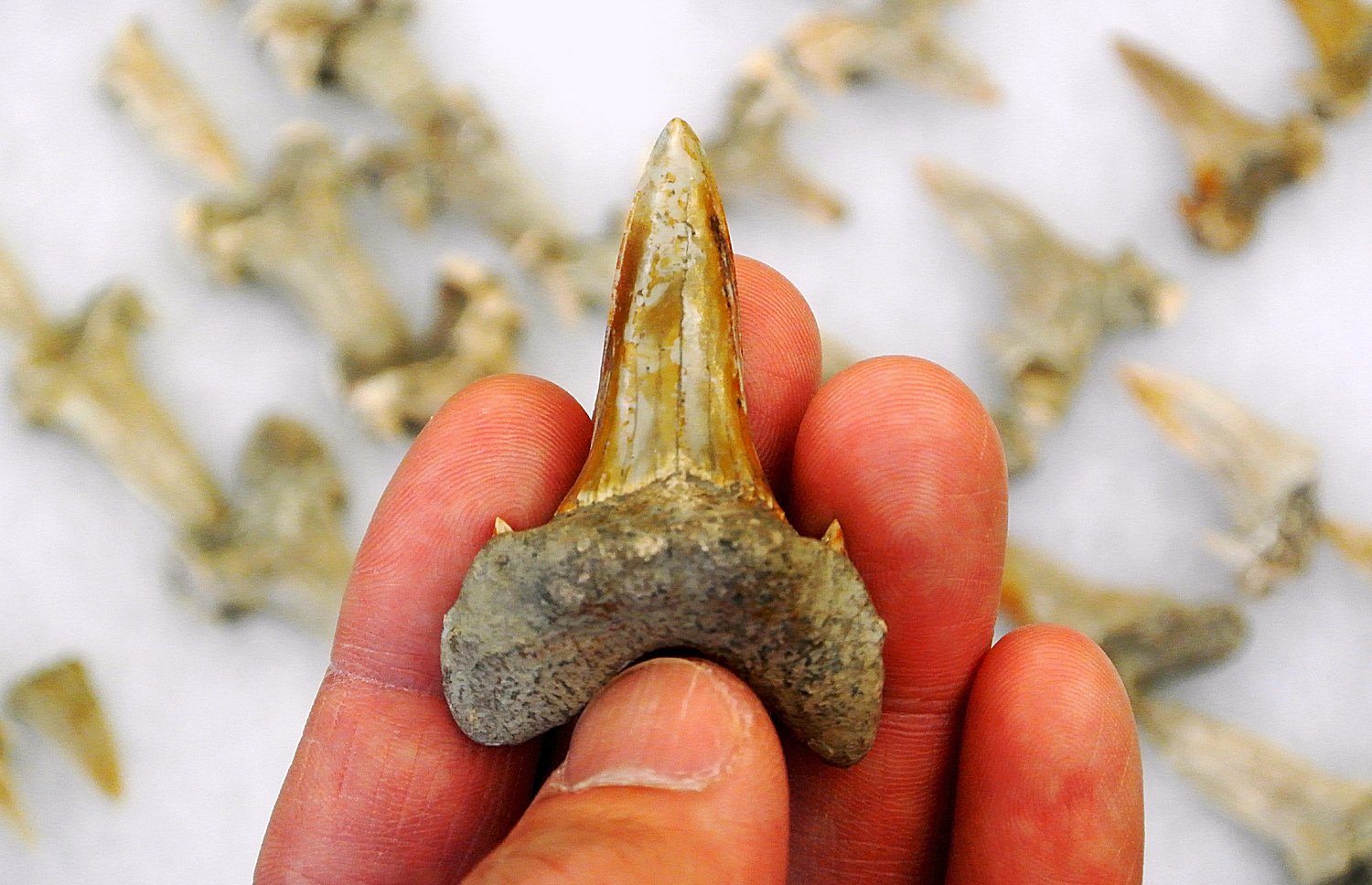A 91-million-year-old fossilized shark discovered in Kansas! Newly described as Cretodus houghtonorum

A 91-million-year-old shark, recently described as Cretodus houghtonorum, was discovered in 2010 near a ranch located in Mitchell County. The discovery and excavation were conducted by the authors, Kenshu Shimada and Michael Everhart, adjunct researchers of the Sternberg Museum, along with two assistants from central Kansas, Fred Smith, and Gail Pearson.
Even though the fossil shark is an incomplete skeleton, it still represents the best Cretodus specimen known from North America. The team was able to uncover more than 130 teeth and 60 vertebrae from the site. The shark was estimated to be about 5 meters (nearly 17 feet) long, suggesting the animal was rather sluggish, which is a similar trait to a shark group called Lamniformes. This also includes modern-day distant cousins, the great white and sand tiger sharks.
The specific epithet “houghtonorum” is in honor of the landowners Keith and Deborah Houghton, who generously donated the specimen to the Sternberg. Discoveries like this would not be made possible without the cooperation and generosity of local landowners, and the local knowledge and enthusiasm of amateur fossil collectors, according to the authors. “We believe that continued cooperation between paleontologists and those who are most familiar with the land, is essential to improving our understanding of the geological history of Kansas, and the Earth as a whole,” said Everhart.
The study, A new large Late Cretaceous lamniform shark from North America with comments on the taxonomy, paleoecology, and evolution of the genus Cretodus, will appear in the upcoming issue of the Journal of Vertebrate Paleontology and is available online. Click here to read the published paper.
More pictures and information from this dig are posted online at http://oceansofkansas.com/Cretodus.html.
Source:
Michael J. Everhart
316-788-1354
Kenshu Shimada
773-325-3697